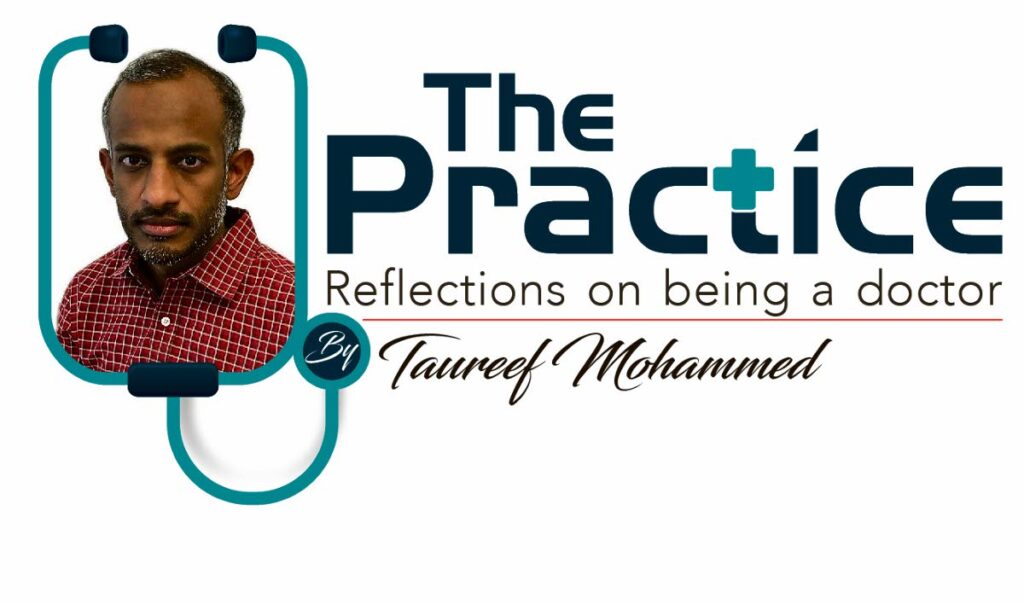Grandchildren as game-changers

Taureef Mohammed
“TODAY’S grandchildren…will know more of their grandparents and will do so for longer lengths of time than at any other period in history,” a 2023 article from the International Journal of Aging and Human Development says, adding that ten per cent of family caregivers were grandchildren.
Whereas the daughter seemed to be at her wits’ end, guilt-ridden, and burnt out, carrying the weight of the world on her shoulders, the granddaughter seemed relaxed, perhaps even a bit enthusiastic, but still concerned.
The father, the patient, who was the granddaughter’s landlord, had dementia, and wondered what all the fuss was about – as far as he was concerned, life was good. And perhaps, relative to some of my other patients with dementia, his life was indeed good.
As the doctor, I could breathe a sigh of relief: there was no crisis here. In fact, there was a model that seemed to be working for the patient, and perhaps even for the granddaughter, who was a healthcare worker.
The patient was safe, someone was there to check up on his medications, make sure the stove was off, the doors were locked, and, most importantly, someone was there to eat a hearty meal with every now and then. (Eating alone is associated with a poor appetite, and poor diet quality – frozen meals are the go-to – and increases the risk of malnutrition and the cascade of health conditions that result from it.)
Three generations in the doctor’s office – a one-off case, I had thought.
But, as is the case in medicine not infrequently – maybe because after we see one case, we are primed to see more – similar cases followed. Over the next three months, I counted six grandchildren who were active caregivers.
There was the grandson who accompanied his aunt and his grandfather.
“What’s going on there?” the nurse said, giving me a heads-up that perhaps there was some strange family dynamic going on, not an unusual thing in the geriatric medicine clinic. A grandson with his aunt at his grandfather’s appointment?
The grandson, a middle-aged man with a young family of his own and a full-time job, was there simply because he cared. He had a healthy distance that allowed him to see his grandfather’s situation – living at home with dementia – more clearly than his aunt, who was living with her father. Owing to its slow, insidious nature, dementia is sometimes difficult to pick up, especially for relatives who live with the patient. And perhaps emotional closeness makes it more difficult.
For the grandson, it was easy for him to rattle off the strange things his Nonno had done over the last couple years. And when it was time to make a plan and come up with some ideas, he spoke about making a roster with his siblings and some of his cousins, whether it was to bring a meal over to Nonno’s, take Nonno out, or pick up Nonno’s medications, adding, modestly, that he had some additional responsibilities.
What he provided was better by far than anything that I, the doctor, could provide.
Not too long after my encounter with this this grandson, I met a granddaughter who brought her grandmother to an appointment. Her grandmother had some cognitive changes, maybe early signs of a dementia; she was still able to make decisions and function independently and safely. She was living alone, did not drive, and was at a stage where, if she could access the services that were available, her quality of life, and perhaps even her cognition, could improve. Additionally, plans could be put in place for the future.
But all of that is easier said than done. Navigating the healthcare system and social services – home care, financial, legal services – is one of the biggest barriers to older people’s accessing the care they need. The entire system is a big bureaucratic web – now mostly digitised – that seems to entangle and strangle older people. It can take an entire allied healthcare team to explain properly how to navigate these systems. This is perhaps the most frustrating part of geriatric medicine. (No, the most frustrating part of geriatric medicine is not the patient with dementia.)
Which is why, when the granddaughter started to explain the role of a power of attorney, adding that she had planned to take her grandmother to the bank to sort out some financial matters, it felt, not like a casual favour, but like a game-changer.
These grandchildren were all game-changers – for the better.
Taureef Mohammed is a physician from TT working in Canada
E-mail: taureef_im@hotmail.com

Comments
"Grandchildren as game-changers"